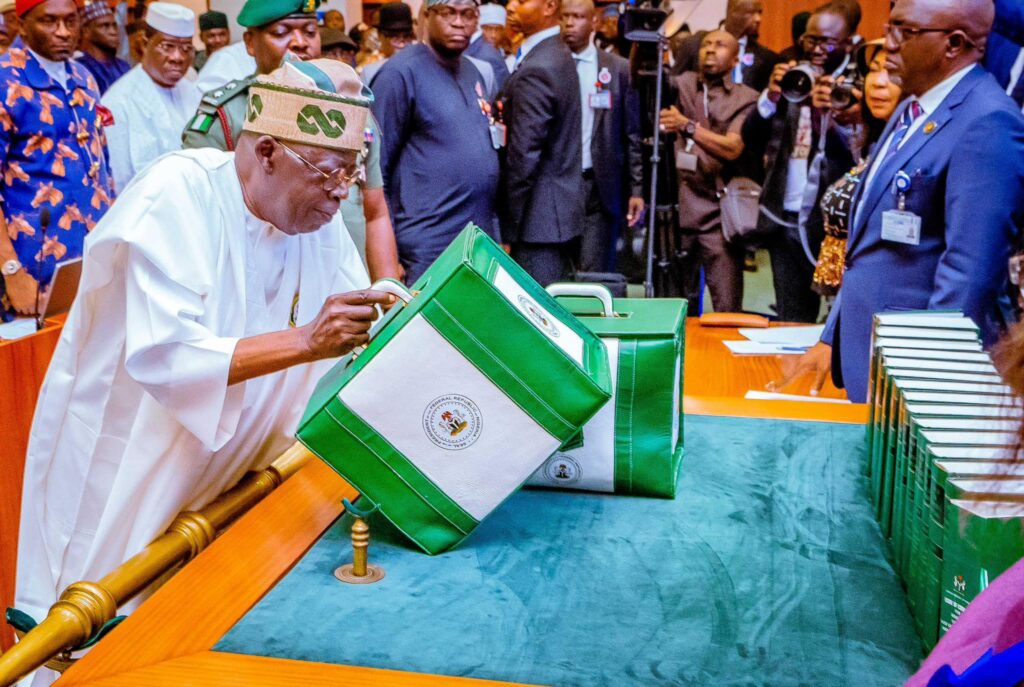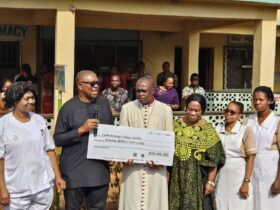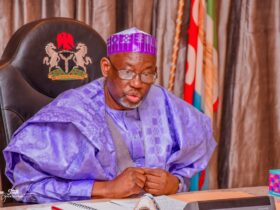
There is a strong indication that the Federal Government may need to increase the already increased and controversial supplementary budget to accommodate the proposed minimum wage raise for workers.
It should be recalled that the House of Representatives revealed that the 2024 budget was increased by N1.27 trillion after government-owned enterprises (GOEs) pledged to increase their revenue next year
Reacting, the presidential candidate of the Labour Party, Peter Obi, accused the Federal Government of being uncaring and insensitive to the suffering Nigerians going by the frivolities in the budget.
The adjustment might be required as the agreed-upon amount could exceed the allocated sum in the initial 2024 budget.
The recommendation was put forth by the International Monetary Fund in its most recent staff country report for Nigeria.
“The authorities noted that a supplementary budget may be needed to accommodate the outcome of the ongoing wage structure negotiations, which may exceed what they had included in the 2024 budget,” the report stated.
The report read in part, “Staff projects a higher fiscal deficit than anticipated in the 2024 budget, but broadly unchanged from 2023. The drivers are lower oil/gas revenue projections, reflecting IMF oil price forecasts but incorporating recent production gains; higher implicit fuel and electricity subsidies; continued suspension of excise measures included in the MTEF; and higher interest costs.
Staff factors in an under-execution of capital expenditure in line with past outcomes and estimates an FGN deficit of 4.5 per cent of GDP relative to the 2024 budget target of 3.4 per cent of GDP. For the consolidated government, this implies a projected deficit of 4.7 per cent of GDP in 2024—compared to 4.8 per cent of GDP in 2023 measured from the financing side—which is appropriate given the large social needs and factoring in a realistic pace of revenue mobilisation.
“Over the medium-term, staff projects consolidation in the non-oil primary deficit. With rising interest costs, government debt stabilises towards the end of the projection period.”
At the same time, the report advised the government to contemplate fulfilling its financial requirements through market mechanisms and external loans.
It said, “Based on staff’s projections, the authorities must raise the domestic and external borrowing ceilings to prevent renewed recourse to CBN financing. With higher interest rates, banks and nonbanks should have sufficient appetite—as indicated by market sources—conditional on careful management of system liquidity, including a likely reduction in the currently high cash reserve requirement.
“Staff projects that the government’s 2024 net financing needs can be met from the market and external borrowing. Domestic market financing needs to increase by 1.5 per cent of GDP over 2023. In addition, the government wants to retire outstanding ways and means borrowing from the CBN of 2.5 per cent of GDP through the issuance of further domestic securities.
It added, “While staff agrees that ways and means financing should be brought to zero by end-2024 in line with the law, the authorities may need to consider other options to avoid crowding out private sector credit, including drawing down the government’s deposits at the CBN built up in 2023 or a second securitisation operation to tackle this legacy problem.
“While external financing is costlier than when Nigeria last accessed Eurobond markets, staff supports an opportunistic issuance, also given upcoming maturities in 2025. A Eurobond issuance and some official financing are factored into staff’s projections as an integral part of the 2024 financing mix.”
Follow the Parallel Facts channel on WhatsApp: https://whatsapp.com/channel/0029VaCQSAoHgZWiDjR3Kn2E









Leave a Reply